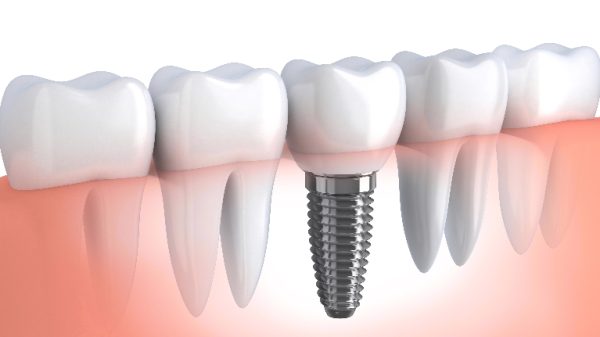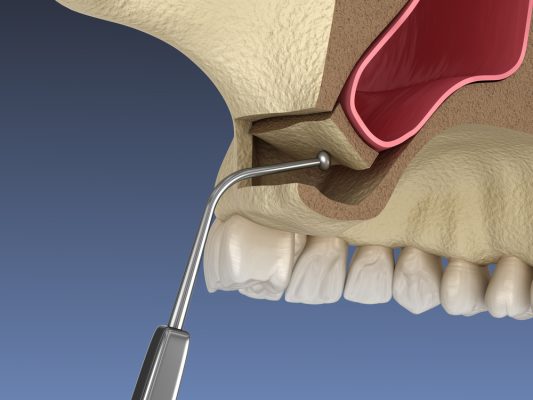Overview of Dental Implant Surgery
Dental implant surgery is a multi-step process designed to replace missing teeth with artificial tooth roots that provide a stable foundation for replacement teeth. The procedure begins with a thorough evaluation by your oral surgeon, who will assess your oral health, bone density, and overall suitability for dental implants.
Throughout the entire process, maintaining good oral hygiene and following your oral surgeon’s instructions are essential for ensuring a successful outcome and minimizing the risk of complications.
Our dentist in Smyrna, Dr. Wisk, is here to provide you with ample information regarding the dental implant procedure and aftercare to help you keep your new prosthesis as healthy as possible. We are happy to serve patients from the surrounding communities of Clayton, Dover, and Middletown. Call now at (302) 653-5011 to learn more.
Understanding Dental Implant Success Rates
Dental implants are a popular solution for those looking to replace missing teeth. This restorative procedure mimics the natural tooth structure, providing not only functionality but also aesthetic appeal. While the success rate of dental implants can reach up to 95%, opting for this procedure does come with certain risks and potential complications that patients should be aware of.
Glenwood Dental Associates, located in Smyrna, DE, emphasizes patient education. Understanding the risks associated with dental implants can help you make an informed decision. Following post-surgery instructions is crucial to minimize the risk of dental implant failures. Factors like good oral hygiene and adherence to dietary recommendations significantly affect the longevity of implants. It is vital to communicate openly with your dental provider regarding any concerns you may have during your treatment or recovery period.
Unique Features at Glenwood Dental Associates
Advanced Imaging Technology
Our practice utilizes state-of-the-art imaging systems for precise implant placement planning. This technology allows Dr. Wisk to identify potential challenges before surgery and develop targeted solutions for optimal outcomes.
Personalized Recovery Support
We provide comprehensive post-operative care instructions and maintain consistent communication throughout your recovery period. Our team monitors your healing progress and responds promptly to any concerns that arise.
Ready to learn more about dental implants? Contact our Smyrna office at (302) 653-5011 to schedule your consultation with Dr. Wisk.
Common Risks Associated with Dental Implants
Infection
One of the primary risks following dental implant surgery is the potential for infection. Bacterial infections can develop at the implant site, leading to symptoms such as pain, swelling, redness, and bleeding. Early detection and treatment significantly improve outcomes, making it essential to maintain regular follow-up appointments at our Smyrna office.
Implant Failure
This occurs when the dental implant does not fuse correctly with the jawbone or becomes loose over time. Various factors may contribute to this, including inadequate bone density, improper placement, and neglecting oral hygiene. In cases of failure, additional procedures may be necessary.
Nerve or Tissue Damage
The placement of dental implants carries the risk of nerve damage, which can result in pain, numbness, or tingling sensations in the surrounding areas. These issues can arise during dental implant placement due to factors like improper placement, poor oral hygiene, or insufficient bone density. This can also happen to the soft tissue, leading to inflammation or bleeding as a consequence of surgical complications.
Patients must pay close attention to their bodies during recovery. If you notice anything abnormal or concerning after your surgery, do not hesitate to reach out to Glenwood Dental Associates for guidance.
 Sinus Problems
Sinus Problems
Sinus problems can arise when dental implants are placed in the upper jaw, particularly if the implant protrudes into the sinus cavity. This can lead to sinus infections or sinusitis, causing discomfort and potential complications. To minimize the risk of sinus problems, your oral surgeon will carefully assess the density of your jawbone and the proximity of the implant to the sinus cavity before the procedure.
In some cases, a sinus lift procedure may be necessary to create enough space for the implant and ensure it is placed safely and effectively. This additional step helps to prevent sinus-related issues and promotes successful dental implant outcomes.
Allergic Reaction
While rare, some individuals may experience an allergic reaction to the materials used in dental implants, such as titanium or other metals. Symptoms of an allergic reaction can range from mild to severe and may include itching, rashes, or even anaphylaxis.
If you have a history of allergies or concerns about allergic reactions, it is crucial to discuss them with your oral surgeon before the procedure. Your surgeon can perform tests to determine if you are at risk and explore alternative materials if necessary, ensuring a safe and successful dental implant experience.
Risk Factors Affecting Dental Implant Success
Understanding risk factors can significantly impact the outcome of your dental implants:
- Poor Oral Health: Existing dental issues, such as gum disease or cavities, can predispose patients to complications. These conditions need to be addressed before undergoing implant placement. Maintaining the health of natural teeth is crucial for the success of dental procedures like implants, as healthy natural teeth support overall oral health.
- Insufficient Bone Density: A solid foundation of bone is essential for implant stability. Patients with bone loss may require additional procedures, such as bone grafting, to enhance the chances of success.
- Lifestyle Factors: Smoking and excessive alcohol consumption can hinder healing and increase the risk of implant failure. Quitting smoking and moderating alcohol intake is highly recommended before and after the procedure.
- Medical Conditions and Medications: Certain health conditions, including diabetes and autoimmune disorders, can complicate recovery and increase the likelihood of complications. Additionally, medications like blood thinners could elevate bleeding risks.
Complications After Dental Implant Surgery
Patients should be aware of potential complications even after a successful implant placement:
- Loosening of the Implant: Over time, implants may shift or become loose due to various reasons, such as improper bite alignment. Regular check-ups can help monitor the stability of your dental implants.
- Peri-implantitis: This refers to an infection occurring around an implant, leading to inflammation of the gum tissue and potential bone loss if left untreated. Maintaining proper oral hygiene is essential for preventing this condition.
- Implant Fractures: Although dental implants are designed to withstand significant force, they can fracture under excessive pressure or force. Regular assessments can help identify any potential issues.
- Gum Recession: Gum recession can occur around dental implants, particularly if the implant is not placed correctly or if the surrounding gum tissue is not healthy. This condition can lead to inflammation, pain, and potentially even implant failure.
Maintaining open communication with your dental professional can aid in swiftly addressing any complications.
Reducing the Risk of Complications
To minimize the risk associated with dental implants, consider the following strategies:
- Choose an Experienced Dentist: Selecting a dental provider with extensive experience in implant procedures is crucial. Their expertise can significantly enhance your chances of a successful outcome.
Maintain Good Oral Hygiene: Thoroughly brushing and flossing your teeth, along with attending regular dental cleanings, will help ensure a healthy environment for your dental implants.
- Follow Post-Surgery Instructions: After your implant placement, it is critical to adhere to any instructions given by your dentist. These guidelines are essential for proper healing.
- Avoid Tobacco Use: Smoking greatly undermines the healing process and can lead to complications, delaying recovery and increasing the risk of failure.
At Glenwood Dental Associates, we strive to provide our patients with trustworthy information and support to help them navigate their treatment plans effectively. If you’re considering dental implants in Smyrna, DE, our team is here to assist you.
Frequently Asked Questions
If you notice any problems with your dental implant, it is essential to contact your dentist immediately. They can assess the situation and determine the necessary steps to address the issue, which may involve additional treatment.
To minimize the risk of infection, it’s important to maintain proper oral hygiene habits. Brush and floss regularly, and comply with the post-operative care instructions given by your dentist. Avoiding smoking and excessive alcohol consumption can further reduce infection risks.
While it is quite rare for the body to reject a dental implant, complications can arise occasionally. Most dental implants are made from biocompatible materials, making rejection uncommon.
Generally, most individuals are good candidates for dental implants, given they possess good oral health and sufficient bone density. However, underlying medical conditions or specific medications may impact eligibility and should be discussed with your dentist.
The primary cause of dental implant failure is often osseointegration failure, which occurs when the implant does not properly fuse with the jawbone. Factors such as poor oral hygiene, insufficient bone density, and improper placement contribute to this risk.
Achieve Your Best Smile With Dental Implants
Dental implants offer a long-lasting solution for those missing teeth, presenting a 95 percent success rate in restoring patient smiles. While there are risks and potential complications, most patients experience successful outcomes when proper guidance and care protocols are followed.
To explore the advantages of dental implants and what they can do for your smile, reach out to Glenwood Dental Associates today. Call us at (302) 653-5011 for more information on our dental implant services in Smyrna.
If you are located in the surrounding areas of Clayton, Dover, or Middletown, DE, consider Glenwood Dental Associates for your dental implant needs. Your journey to a healthier smile begins here.

 Sinus Problems
Sinus Problems Maintain Good Oral Hygiene
Maintain Good Oral Hygiene